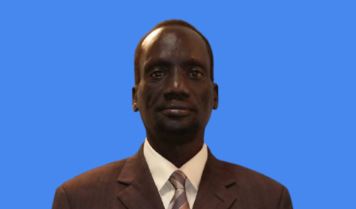BY DENG VANANG
It is now eleven years since the 15 December 2013 tragedy in South Sudan and the seething rage in the victims and their relations may not be as furious as it was when conflict erupted as the passage of time partly heals although its memory is still deeply engraved in most survivors’ hearts and minds. Blame games are still much alive about what happened and what should not have happened.
Notably, absent in the minds of many is the question: What has changed 11 years after the horrific incidents? Have South Sudanese learned from this past tragedy to shape the future? Has the government owned up to its misdeeds for the sake of constructive redress or have the victims recovered and said bygones are bygones? Either scenario is yet to happen given the current air of continuous mutual suspicion and mistrust.
What indeed has happened is the slowdown of previously rising tensions by the 2018 peace deal which saw the same principal political rivals of 2013 returning to the dining table and sharing the spoils of conflict, although lingering fragility to overturn the table cannot be wished away.
The echoes of the December 2013 still vibrate and partly triggered the rapid and present state collapse and from its rubbles emerged internally competing factions for power aimed at exploiting the state’s rudderless policy direction, dysfunctionality, compromised health of an aging president and entire politico-military opposition meltdown that makes internal change of the government more viable than external one. Pre-war voices for change are even growing louder for a democratic overhaul of state governance. The conflict political dynamics, including the state’s intransigence due to more radical, hardline political posturing in the state house in Juba and among the governing elite have created a whole lot of new extremist forces demanding complete sovereignty from the nascent republic and more autonomy from the center.
However, in the heat of pursuing divergent interests, most of the aforementioned political players fail to discover the hidden opportunities or gold mines the genocide has bequeathed to concurrently advance positions and ready the ground for a shared national destiny. One is the genocide has unearthed our secret inner ill feelings towards each other, giving us early warning to better adjust and possibly retool. It generates a spirit of openness to dialogue unlike in the past when we were conspiratorially bottled up. It jolts a nagging urge in most of us to innovate deterrent solutions against future recurrences. While invaluable lessons are equally learned that violent impunity failed to silence the opposition as intended and neither has the opposition’s attempted revenge reversed the state’s terror as we speak.
The above positive outcomes from the bitterness of conflict lay the middle ground to open a new chapter. The government must take the first step in realizing that it is not inconceivable that the state does not suffer crises, it is the way it intelligently manages and turns them into opportunities by accepting and correcting the wrongdoing. This is by not necessarily apologizing openly in public, but in calculated silence by genuinely making peace with the opposition and implementing the resultant agreement that fully addresses public grievances leading to and resulting from the conflict for the common good. This can no doubt strengthen its right and resolve to govern and subsist rather than weaken it. This requires the state to make hard choices from the two extremes of either remaining stuck in the darkness of the past or crawling into the brightness of the future. If it chooses to go by the dark past, then the opposition utilizes it much better than the state does, with the latter to blame heavily for destruction and insecurity against which state formation was originally mooted. Should choosing the future become the state’s wisdom, hence the state peacefully and cleverly renegotiates itself back into the lost legitimacy by wholeheartedly accepting peaceful conflict resolution, while taking credit for its success.
On the other hand, opposition and victims viewing the devastating conflict and ensuing loss of lives from the overall negative point of view can be its greatest undoing since the survival of the state depends on its people’s collective and reasonable flexibility, shrewdness and ability to correct bad past to move forward in whichever way the situation dictates. Mainly focusing on the positive flip side of the regrettable conflict against permanently dwelling only on its negative aspects in ever-changing war dynamics prevents opposition and victims from looking for solutions. Negative and empty rage minus proposing constructive and middle-of-the-road solutions to conflict deprives the vindictive and recalcitrant opposition of the popular agenda of the day, a sure downward spiral into political oblivion.
Much as it impedes objective and renewed thinking while reigniting bitterness for an endless cycle of violent revenge. The common necessity for both sides is to reach out, accept the challenge, and craft ways to navigate the future.
Courageously facing the future begets our zealous match forward, while addressing the challenging inequities along the rough road to a common destiny far greater, by both remembering and addressing horror not to recur than perpetuate it in acts of impunity and vengeance. The quest to close the dark chapter in the history of the nation is not merely in appending peace pacts and singing reconciliatory tones, it is rather in genuinely translating those words into more tangible actions through balanced state restructuring policy, governance, and people-centered development programs as the only avenues in reconciling and reuniting a bitter, divided nation.
The writer is the Chairman and Commander-In-Chief of the holdout opposition group, United Democratic Revolutionary Movement/Kuilueel (UDRM/K). He can be reached via dvanang@gmail.com.
The views expressed in ‘opinion’ articles published by Radio Tamazuj are solely those of the writer. The veracity of any claims made is the responsibility of the author, not Radio Tamazuj.




